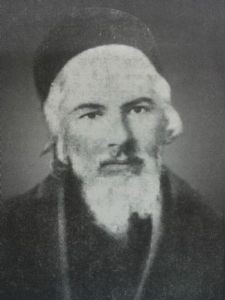A Short Tribute
Hacham Reuven Timtsitiat was born in the Mezquita village, in the Darâa region of Morocco, in 1881. He began his studies in the Tialit village with Hacham Saadia Ben David Yosef. At the age of fourteen, Hacham Reuven Timtsitiat moved to the Kitawa village to study with Hacham Shlomo Ifenger, author of the book Keter Shlomo. In Kitawa, he studied with his friend Hacham Shalom Avisror, author of Netivot Shalom. After he was ordained as a rabbi, he returned to his family in Mezquita.
Hacham Reuven Timtsitiat married Esther, but they had no children. After several years, and with her consent, he took a second wife. It was his wife Esther who prepared the wedding and who accompanied the bride to the ritual bath. Their son Yishaya was very gifted, but suffered greatly. Hacham Reuven Timtsitiat prayed that he would not see his death. The child became a Torah scholar, and Hacham Reuven Timtsitiat's prayers were answered: He died two years before his son.
Hacham Reuven Timtsitiat devoted himself to studying Torah, in its revealed and hidden aspects, and was very devout in his ways. His Sabbath day sermons could last three hours, and his congregation would remain seated through their entirety. His home housed an important library, with books stacked in boxes that his younger brother Jais would bring him from the big city of Marrakesh. Jais gave his entire income to Hacham Reuven Timtsitiat so that he could devote himself to studying Torah, and would sit next to his elder brother's table.
In his books, Hacham Reuven Timtsitiat was rigorous about writing only original Torah commentary. If he would see an innovation similar to his written elsewhere, he would erase it from his book, out of the conviction that the commentary belonged to its writer's soul.
Hacham Reuven Timtsitiat passed away on 23 Tishrei 5709 (1949) and was buried in Tamenagrout, in the Darâa region.
Hacham Reuven Timtsitiat wrote three books: Mahane Reuven – sermons and commentary on midrash, was printed in 1934, during his lifetime; Dua'ei Reuven – on the Torah and Menuhat Shalom – innovations on the Bible and the Aggadic literature of the Talmud, were printed in Israel after his death, by his grandson.
